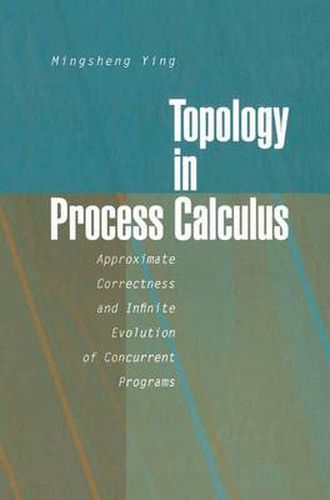Readings Newsletter
Become a Readings Member to make your shopping experience even easier.
Sign in or sign up for free!
You’re not far away from qualifying for FREE standard shipping within Australia
You’ve qualified for FREE standard shipping within Australia
The cart is loading…






This title is printed to order. This book may have been self-published. If so, we cannot guarantee the quality of the content. In the main most books will have gone through the editing process however some may not. We therefore suggest that you be aware of this before ordering this book. If in doubt check either the author or publisher’s details as we are unable to accept any returns unless they are faulty. Please contact us if you have any questions.
Communication and concurrency are essential in understanding complex dynamic systems, and there have been many theories to deal with them such as Petri nets, CSP and ACP. Among them, CCS (process calculus is one of the most important and mathematically developed models of communication and concurrency. Various behavior equivalences between agents, such as (strong and weak) bisimilarity, observation congruence, trace equivalence, testing equivalence and failure equivalence, are central notions in process calculus. In the real applications of process calculus, specification and implementation are described as two agents, correctness of programs is treated as a certain behavior equivalence between specification and implementation, and then the proof of correctness of programs is a task to establish some behavior equivalence between them. The goal of this book is to provide some suitable and useful concepts and tools for the understanding and analysis of approximate correctness of programs in concurrent systems. Throughout this book the focus is on the framework of process calculus, and the main idea is to construct some natural and reasonable topological structures which can reveal suitably a mechanism of approximate computation in process calculus and to work out various relationships among processes which are compatible with these topological structures.
$9.00 standard shipping within Australia
FREE standard shipping within Australia for orders over $100.00
Express & International shipping calculated at checkout
This title is printed to order. This book may have been self-published. If so, we cannot guarantee the quality of the content. In the main most books will have gone through the editing process however some may not. We therefore suggest that you be aware of this before ordering this book. If in doubt check either the author or publisher’s details as we are unable to accept any returns unless they are faulty. Please contact us if you have any questions.
Communication and concurrency are essential in understanding complex dynamic systems, and there have been many theories to deal with them such as Petri nets, CSP and ACP. Among them, CCS (process calculus is one of the most important and mathematically developed models of communication and concurrency. Various behavior equivalences between agents, such as (strong and weak) bisimilarity, observation congruence, trace equivalence, testing equivalence and failure equivalence, are central notions in process calculus. In the real applications of process calculus, specification and implementation are described as two agents, correctness of programs is treated as a certain behavior equivalence between specification and implementation, and then the proof of correctness of programs is a task to establish some behavior equivalence between them. The goal of this book is to provide some suitable and useful concepts and tools for the understanding and analysis of approximate correctness of programs in concurrent systems. Throughout this book the focus is on the framework of process calculus, and the main idea is to construct some natural and reasonable topological structures which can reveal suitably a mechanism of approximate computation in process calculus and to work out various relationships among processes which are compatible with these topological structures.